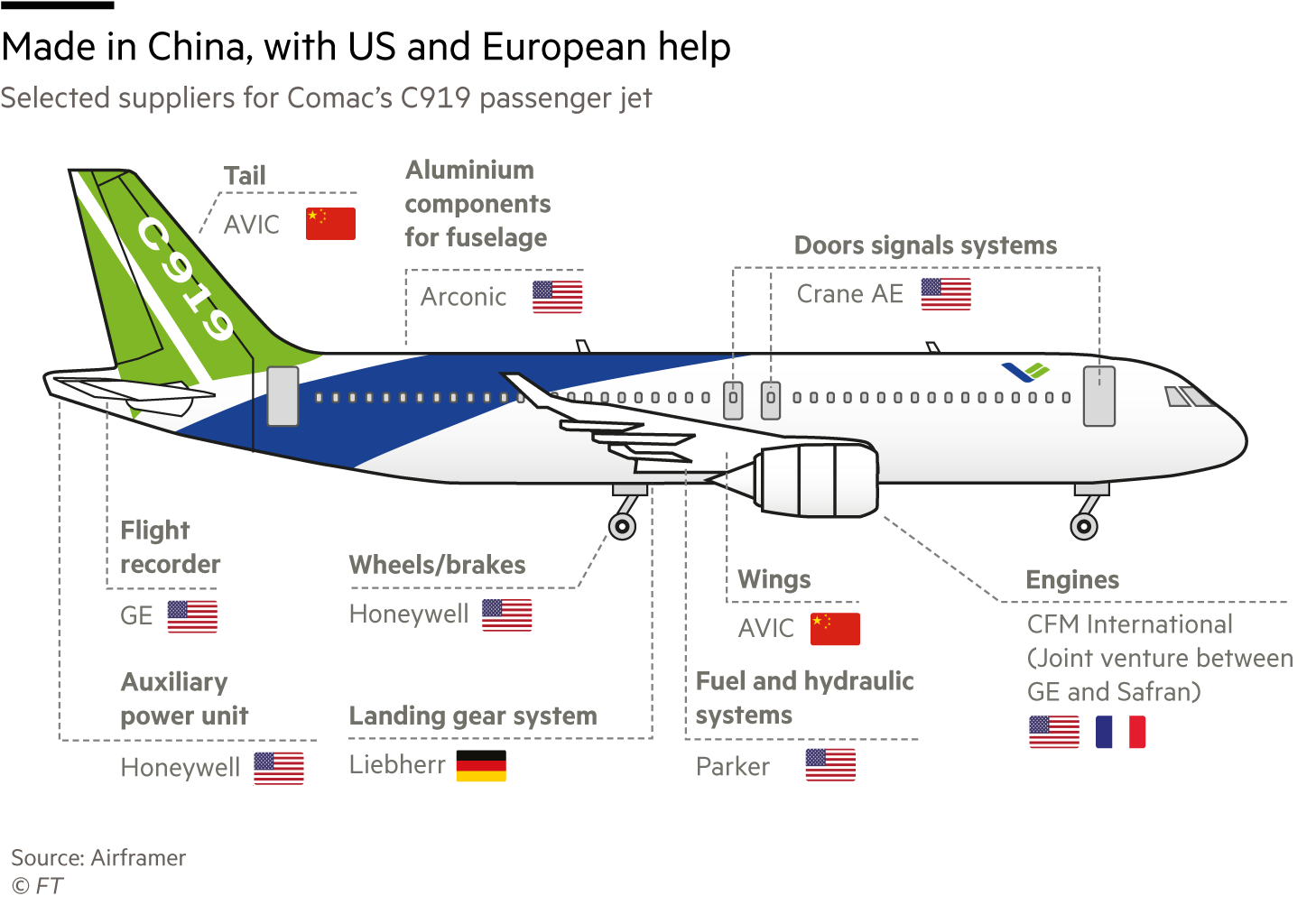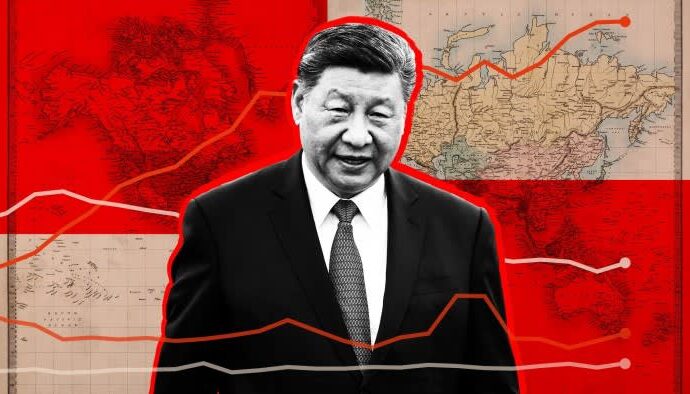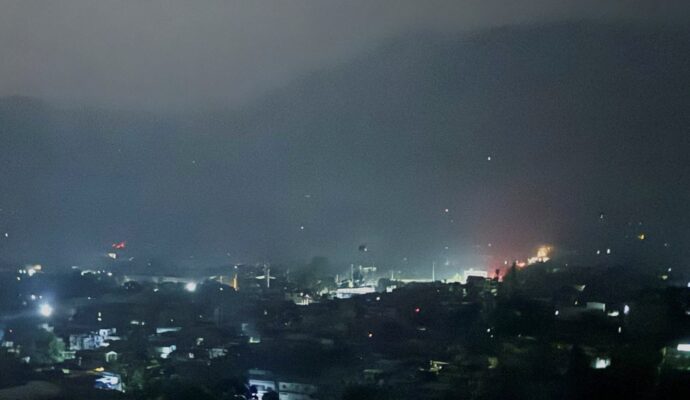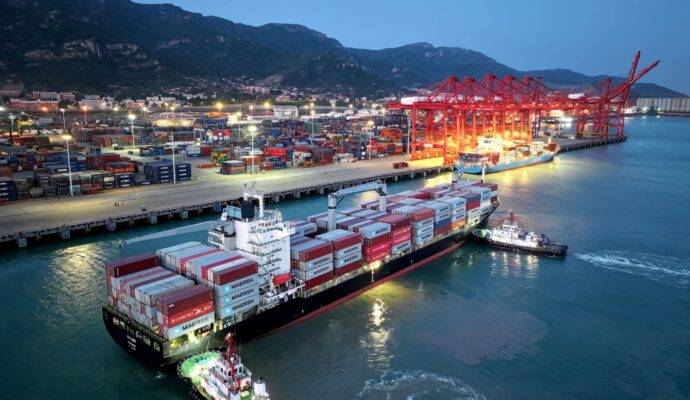This article is an on-site version of our FirstFT newsletter. Subscribers can sign up to our Asia, Europe/Africa or Americas edition to get the newsletter delivered every weekday morning. Explore all of our newsletters here
Good morning and welcome back to FirstFT Asia. In today’s newsletter:
India strikes ‘terrorist infrastructure’ in Pakistan
A ‘landmark’ India-UK trade deal
‘Made in China’ airliner faces trade turbulence
India said it had carried out strikes on “terrorist infrastructure” at nine sites in Pakistan, describing the attacks as “focused, measured and non-escalatory in nature”.
What we know so far: While India’s defence ministry did not specify the locations of the strikes in Pakistan that took place early on Wednesday morning local time, it said it was “hitting terrorist infrastructure”. The ministry added that “no Pakistani military facilities have been targeted”. A Pakistan military spokesman was quoted by Reuters as telling a local broadcaster that the country’s response was under way, without giving details. The spokesman said five places in Pakistan were hit in the Indian strikes, including two mosques, adding three people were killed and 12 injured.
Kashmir tensions: Relations have plummeted between the two nuclear-armed neighbours since last month when New Delhi blamed Islamabad for an attack by militants in Indian-administered Kashmir that killed 26 people. Pakistan has previously denied any involvement in the attack. The two countries have downgraded diplomatic ties since the killings, and India has suspended participation in a key water sharing treaty.
This is a developing story — follow it here.
Here’s what else we’re keeping tabs on today:
Economic data: Taiwan reports April CPI inflation data.
Xi Jinping heads to Moscow: China’s leader begins a four-day trip to Russia for Victory Day and talks with Vladimir Putin.
Monetary policy: The US Federal Reserve is expected to keep interest rates unchanged when it announces its latest decision today.
How should central banks navigate the new world order? Pose your questions about monetary policy to Chris Giles and other FT experts, and have them answered in a live Q&A today.
Five more top stories
1. Britain and India yesterday announced a trade deal that included concessions to New Delhi on access to UK employment markets in return for big cuts to Indian tariffs on exports of whisky and cars. The deal will exempt the UK operations of Indian employers from paying national insurance on Indian staff relocating to the UK for up to three years, making it cheaper to move people to Britain. Read more about the “landmark” agreement.
India IPO: Indian e-scooter maker Ather Energy fell on its $352mn stock market debut as investors poured doubts on the unprofitable sector.
More India news: A New Delhi court will this week hear a long-running case over alleged financial improprieties by Rahul Gandhi and Sonia Gandhi that has potentially far-reaching implications for the opposition Indian National Congress.
2. Chinese manufacturers are attempting to avoid the Trump administration’s tariffs by fraudulently undervaluing cargo sent to the US. A Financial Times analysis revealed how Chinese exporters are exploiting a system that American authorities have struggled to police.
3. Canadian Prime Minister Mark Carney told Donald Trump that his country was “not for sale” as he rejected the US president’s push to make Canada the 51st US state during a meeting at the White House yesterday. Trump responded to Carney by saying “never say never”, in a sign that tensions are likely to persistent between the neighbouring countries.
4. Friedrich Merz won parliament’s backing to become Germany’s chancellor at the second attempt after a surprise failure dealt an early blow to his authority. His initial defeat revealed the fragility of his support in parliament and signalled the challenges ahead for the country’s new government.
5. Europe’s last manufacturer of ingredients for some vital antibiotics is closing its biggest domestic factory and shifting some production to China, dealing a blow to Brussels’ efforts to reduce drug dependence on Asia. Lossmaking Xellia Pharmaceuticals said it could only survive against Chinese competition by moving some of its production to its plant there.
The Big Read

A flurry of diplomatic activity has already taken China’s President Xi Jinping to Vietnam, Cambodia and Malaysia. This week he will be in Moscow and a few days later is expected to receive Brazilian President Luiz Inácio Lula da Silva and other South American leaders in Beijing. The diplomatic campaign underlines how for China, Trump’s latest trade war is a critical moment as it positions itself as “the new champion of economic globalisation”.
We’re also reading . . .
Martin Wolf: The world — especially China and Europe — must think afresh as the US steps away from its role as balancer of last resort.
AI in hiring: Companies were using automated screening much earlier, but jobseekers’ adoption of the tools is now causing problems, writes Sarah O’Connor.
Buffett’s bet of the century: FT Alphaville’s Robin Wigglesworth tells how the Oracle of Omaha embarrassed his own industry.
Graphic of the day
For years, China has had high hopes that its first domestically made airliner could challenge Boeing and Airbus’s market dominance. But amid an escalating trade war, analysts warn that the heavy reliance on US suppliers for critical components could threaten plans to increase production of Comac’s C919.

Take a break from the news
What do flight attendants say about our culture? The evolution of their uniforms — charged with establishing the visual identities of their home nations — are reflective not only of changing fashion tastes but of social progress, writes Jessica Beresford.



